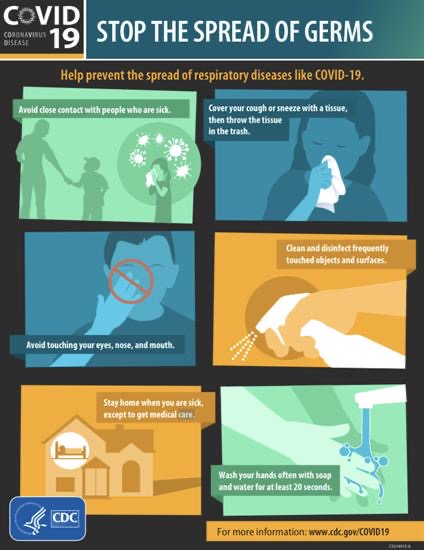Affirming YOUth continue to work with local, state and federal agencies in monitoring COVID-19, part of the coronavirus family.
Individuals in Miami-Dade County who believe they may have been exposed to COVID-19 should call the Florida Department of Health at 305-324-2400. If you have a medical provider, call them. If traveling to a medical office or facility, call ahead.
News reports about a new coronavirus have the potential to spark great fear. But experts say it’s also a chance to have a candid talk with kids about simple precautions that can prevent the spread of many illnesses, not just this one.
Coronavirus is a category of virus so named because under a microscope it has little spikes that look like sun rays. COVID-19 is now causing concern, the category is not new; the impact in humans is typically akin to the common cold, said internal medicine physician and professor Armen Henderson of the University of Miami. But the new form that appeared abruptly and spread rapidly, sparks global worry.
What’s tricky isn’t what’s known, but what’s not yet known, said clinical psychologist Lynn Bufka, senior director of practice, research and policy for the American Psychological Association. There are questions about how easily this coronavirus spreads and how dangerous it is for most folks, not just those who are at high risk of complications. And there’s no vaccine yet.
Those questions can amp up anyone’s anxiety level, but especially that of young children and adolescents who have trouble assessing health threats or putting news reports and social media posts in perspective.
Talk about it
The first step for parents, teachers and other adults who deal with kids is gathering information. What’s a reasonable amount of risk and has everything been done that can be done to protect health is vital. “We don’t want anxiety to determine (that) we don’t want to interact in the world, which leads to other problems,” said Bufka.
“Read or learn what you need to know. For me, that might be different from what you need to know,” she said. “How will it impact my day-to-day life? Are there cases nearby? The calculation for how to respond is different” depending on your locale.
Individuals who struggle to manage anxiety may be more stressed by news reports, she said. But taking precautions, making thoughtful decisions and not allowing oneself to be stuck is a helpful approach that applies to more in life than an emerging health threat.
If a child expresses concern to offer reassurance, they’re doing everything possible to keep the family healthy.
My job as a caregiver is to make sure we do everything we can to protect you from getting sick, no matter what. That’s why we wash our hands and if they’re not clean, we keep them away from our eyes and nose and mouth. We sneeze into our (elbows).
One of the best things parents can do for worried kids is to find out what they’ve heard, then correct misinformation.
If kids raise a concern or have questions, talk to them in age-appropriate terms. At any age, start with what they’ve heard or think they know. And point out that when they are sick, they go to a doctor or other health care provider.
People also get confused about the difference between possibility and probability — especially kids. “Is it possible I can contract it? Yes. Is it probable? No. The likelihood varies depending on where you live.
Tackling prevention
If a child is not asking questions, this outbreak still offers a great opportunity to review basic prevention practices. Experts recommend:
- It’s a good idea to take precautions to keep children from getting a virus of any sort, including washing hands, not sharing utensils and drinks, and all those other healthy-living tricks most people learn as very young kids.
- Go over other healthy habits, like getting lots of sleep and bundling up when it’s cold.
- And certainly, address any illness. Most people will get over a cold or flu on their own in a matter of days, otherwise, it’s time to see a doctor. Ditto if symptoms are severe, whether or not it’s coronavirus.
- Be careful about medicating kids, even with over-the-counter drugs, without checking with a pharmacist or doctor. Even OTC meds can be bad in some cases.
